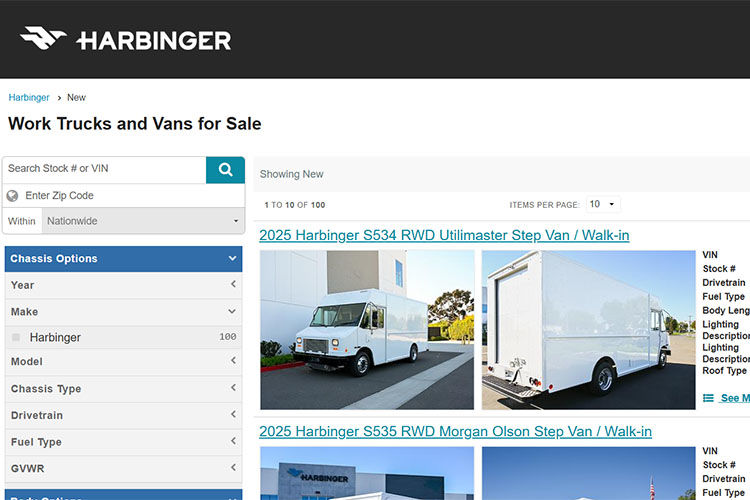Commercial EVs: What You Need to Know
.jpeg)
.jpeg)
Commercial EVs: What You Need to Know
Electric vehicles (EVs) have been around for quite a while. In fact, the dawn of EVs is simultaneous with that of internal combustion engine (ICE) vehicles, with both electric and ICE vehicles showing up in the late 1800s and both modes being commercially produced in the early 1900s. Commercial applications began as early as 1897 when New York City built its fleet of electric taxi cabs,
.jpeg)
and UPS had an EV delivery fleet by 1935.
.jpeg)
Fast forward to the 21st Century, and EVs are again making a name for themselves in the commercial world. The technology has improved significantly since its debut, and many OEMs and startups are developing modern EVs for commercial use.
Why EVs For Commercial Use?
There are several reasons why EVs may be more desirable for commercial use rather than gas or diesel vehicles, including:
- Reduced air pollution
- Reduced fuel costs
- Reduced maintenance intervals and costs
- Reduced noise pollution
What Are Commercial EVs?
The term EV covers a variety of technologies. As you read through the following sections, you'll see that we've highlighted the main types of EVs available today and what makes them different from one another. Read on to learn more about what they are and which features will affect their suitability for your business applications.
What Is a Battery Electric Vehicle (BEV)
Battery electric vehicles (BEVs) are the simplest form of electric vehicle. Featuring a battery pack that powers one or more electric motors, BEVs do not have an internal combustion engine (ICE), transmission, or fuel tank. The BEV requires the largest, thus heaviest, battery pack of all the electric vehicle configurations. Batteries are heavy, comprising a large portion of the vehicle’s total weight, so creative design is essential to provide payload capacities comparable to ICE counterparts.
.jpeg)
BEVs are well-suited for businesses with predictable, shorter-range routes, such as delivery services or shuttle buses. Although BEVs typically have a higher price tag than either HEVs or PHEVs, they still have lower operating costs, require less maintenance than ICE or hybrid vehicles, and produce zero emissions, making them environmentally friendly. However, access to charging infrastructure is not optional and must be considered.
What Is a Hybrid Electric Vehicle (HEV)
A hybrid electric vehicle (HEV) is a type of vehicle that combines an ICE with one or more electric motors. HEVs have no plug-in system to recharge, instead using regenerative braking to recharge their batteries for later use. The electric motor assists the ICE during acceleration and provides power for low-speed driving, while the ICE is used for high-speed driving and longer trips.
.jpeg)
HEVs can provide improved fuel efficiency and lower emissions compared to traditional gasoline-powered vehicles. The HEV also provides simplified operations; basically, you drive until you need to refuel, just like any ICE vehicle.
The downside is a higher price tag compared to its ICE competitors. However, HEVs are generally less expensive than both BEVs and PHEVs.
What Is a Plug-in Hybrid Electric Vehicle (PHEV)
Plug-in hybrid electric vehicles (PHEVs) use batteries to power an electric motor in conjunction with an ICE. PHEV batteries can be charged using a wall outlet or charging equipment, by the ICE as it runs, and through regenerative braking. PHEVs can run on electric power alone for local driving, but also have the convenience and range of a traditional gasoline-powered engine for longer trips.
PHEVs have a smaller battery and are less expensive than BEVs, and they can still be plugged in at night to recharge. Conversely, because they have an ICE, PHEVs require more maintenance than a BEV, and the BEV uses electricity more efficiently, so operating costs for the BEV may be lower in the long run.
What Is a Fuel Cell Electric Vehicle (FCEV)
Fuel cell electric vehicles (FCEVs) are zero-emission vehicles that use hydrogen to generate electricity which powers an electric motor. FCEVs work like a BEV, except that instead of batteries storing energy, it uses a fuel cell to convert hydrogen into electricity via an electrochemical reaction.
FCEVs have been around for decades but have not been widely adopted compared to other EV types; meaning that refueling infrastructure is far behind even electric charging stations. FCEVs are a promising technology with many advantages over other alt-fuel solutions, but it just isn’t viable yet as an off-the-shelf replacement for gas or diesel.
Matching The Technology To The Job
The first step in choosing the right EV for your business is to decide if adopting EVs will move you closer to accomplishing your business goals. Issues to consider should include the following:
- Is there currently sufficient recharging infrastructure available?
- Are you willing and able to train operators on new equipment?
- Is it a fiscally sustainable and advantageous solution?
The next step is to match the technology to your needs. Issues to consider should include the following:
- Which is more important to you; range or payload capacity?
- Which technology will fit your budget and satisfy your needs?
For commercial applications, the choice between EV types depends on the driving patterns and needs of the business. A delivery company might choose PHEV, prioritizing range over power output because their vehicles travel long distances daily. Manufacturing or warehousing operations might choose BEV, prioritizing power output over everything else because its employees spend most of their time transporting heavy loads within proximity. An organization might choose HEV to satisfy zero-carbon goals and HEV is the most budget-friendly and easy-to-implement option.
Conclusion
EVs can be suitable for many different purposes, and although it’s been a point of contention, recharging infrastructure is improving. And as long as the nation’s energy grid can cope with the massive demand that’s building, that’s a welcome development. But, before investing, business owners should consider their own particular needs and how the strengths and limitations of each type of EV will match those needs.
Published on: September 06, 2023






